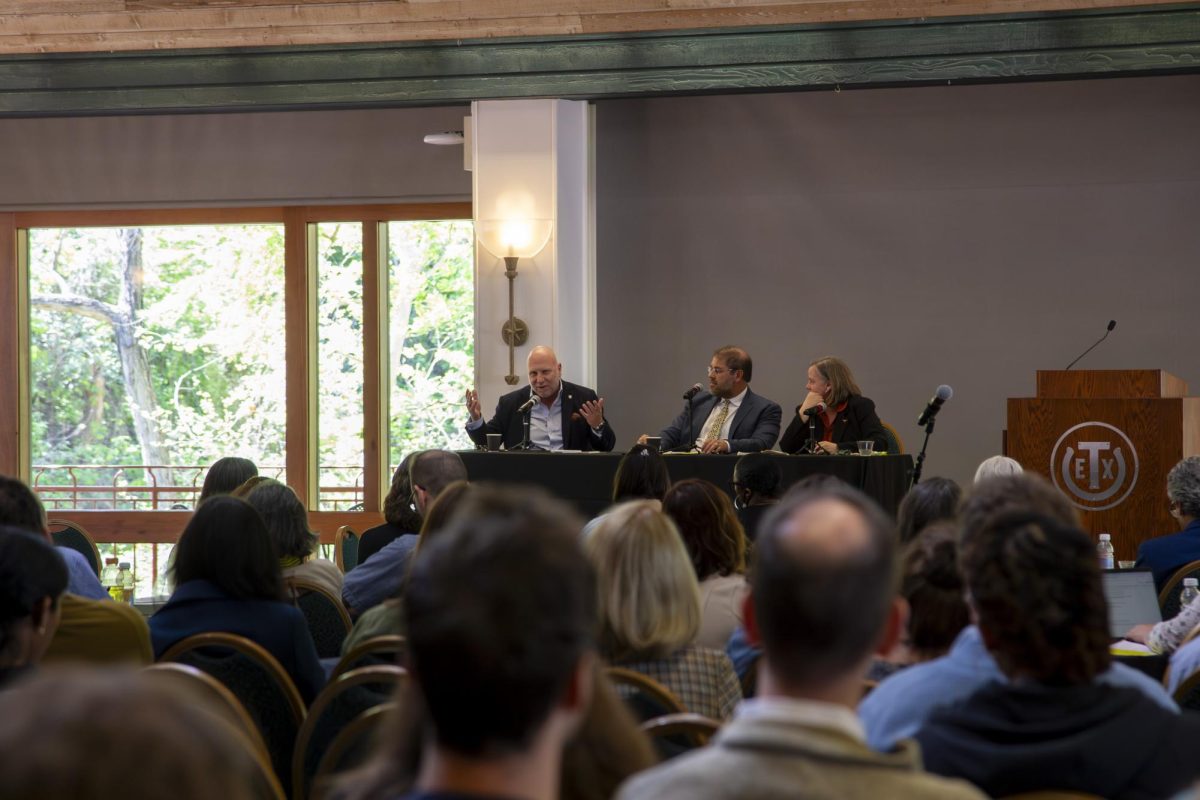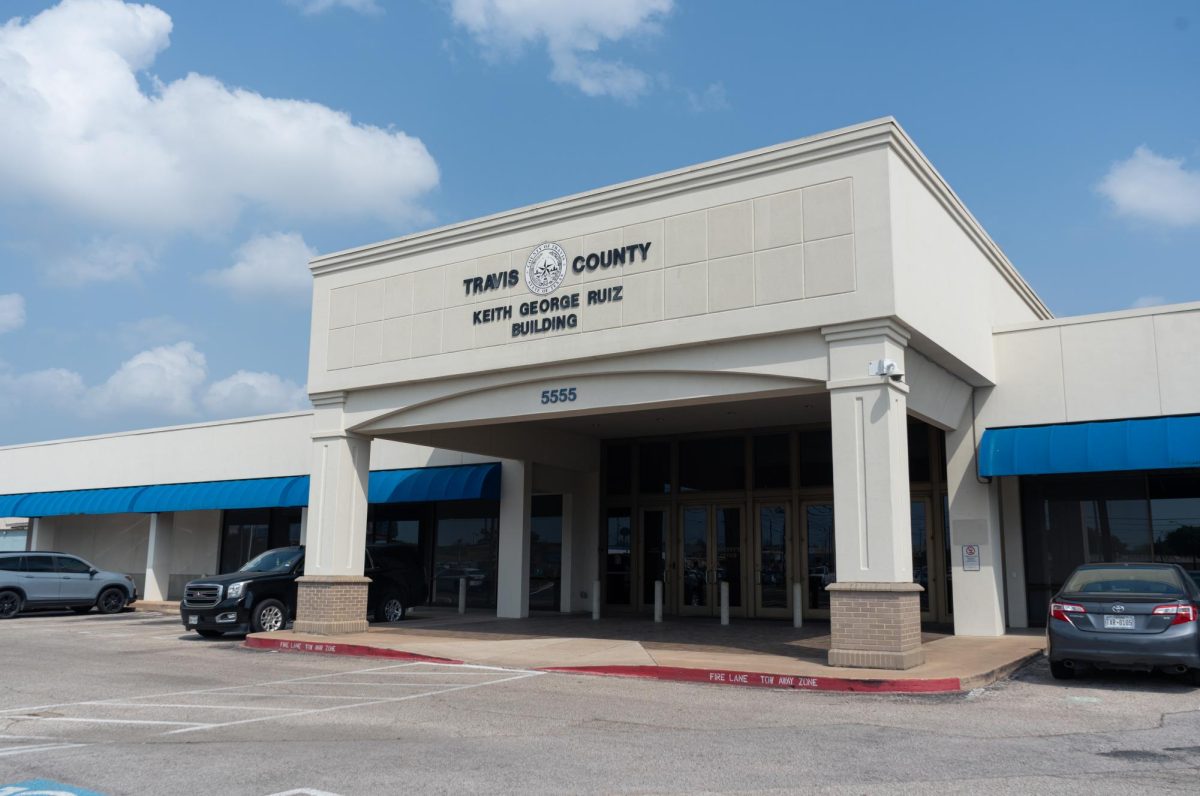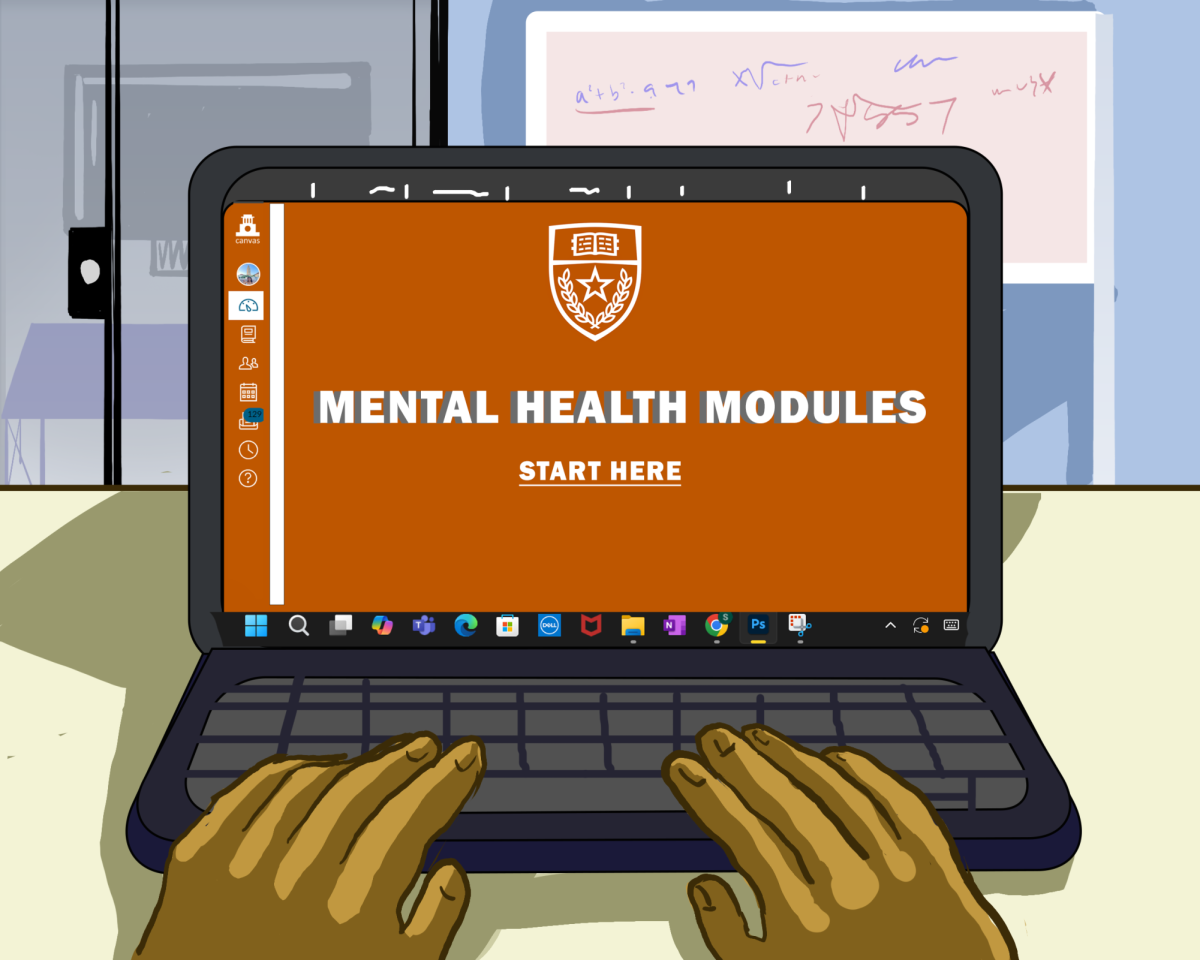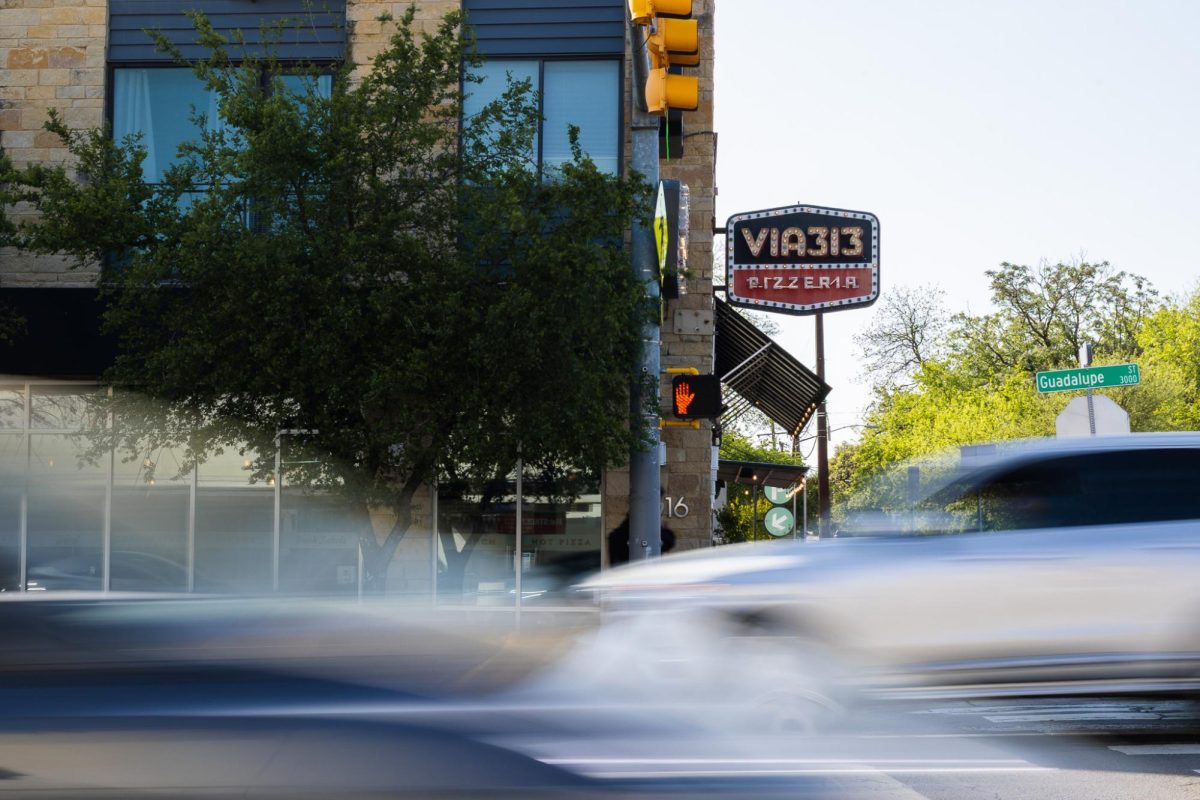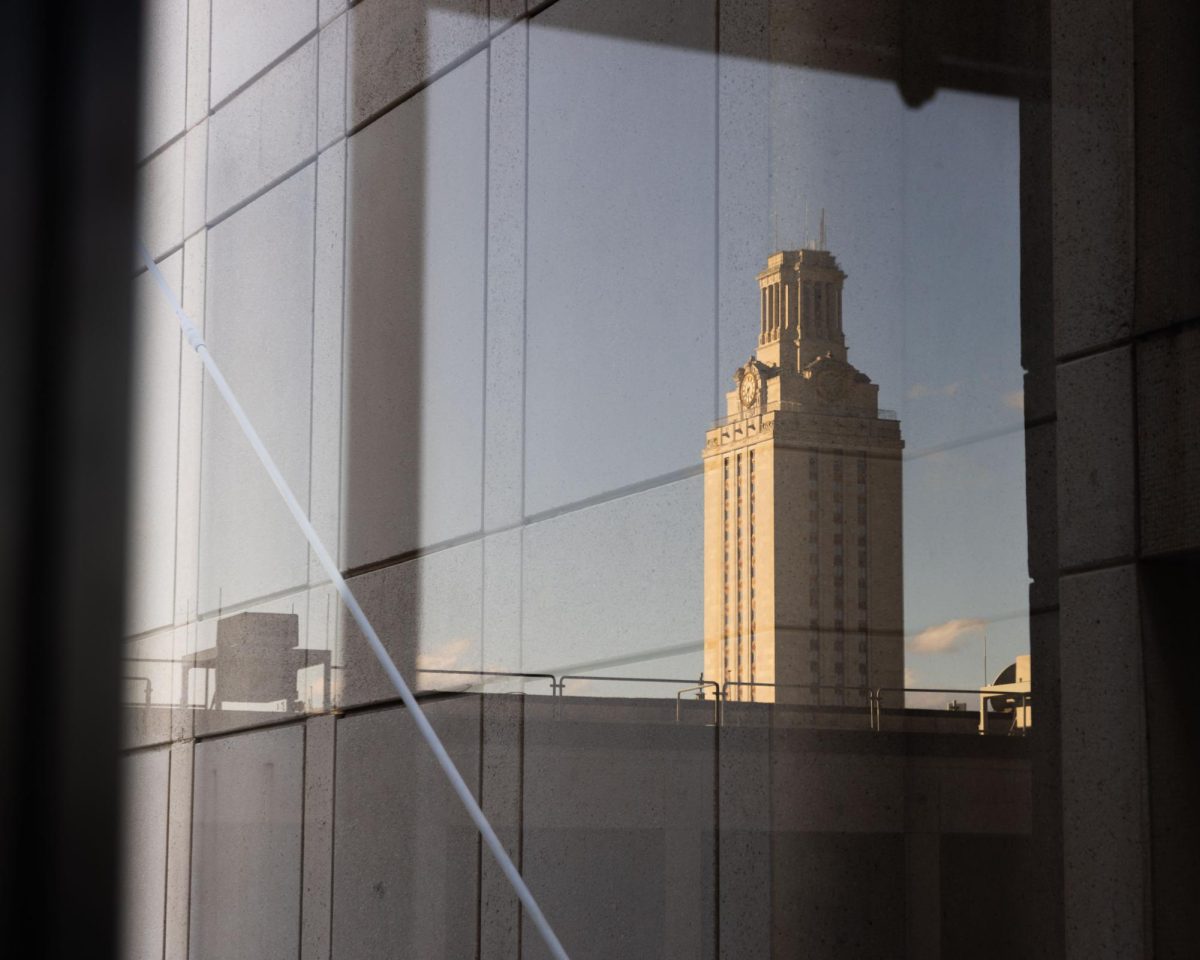The Civil Discord Symposium continued on Friday with a panel discussing the state of the “traditional university” and if it’s still an effective form of education.
Pano Kanelos, University of Austin President, conversed with Ann Stevens, Dean of the College of Liberal Arts, on a topic titled, “Is the traditional university broken beyond repair?” Jeremi Suri, UT professor of public affairs and history, moderated the discussion to the crowd of nearly 100 professors, students and members of the public. During the discussion, they focused on whether or not these institutions allow for freedom of speech and proper “return on investment.”
Stevens said, from her perspective as a labor economist, UT provides a strong “return on investment” because for the cost of tuition, the University will provide students with the discovery of knowledge that will allow students to positively influence the job market.
She compared the “return on investment” to football players who practice running across the field, banging against dummies and jumping through cones. She said that it’s not necessarily what they do during the game, but the training they complete instead.
“In liberal arts, in many fields, when we have students do close reading in the humanities, it’s so they can appreciate art and literature,” Stevens said. “But it’s also so that, 20 years down the road when they’re in some corporate setting, and they’re trying to decipher what the competition is doing through these badly written documents, they have some muscle memory.”
Kanelos said the “return on investment” should instead be measured by “human flourishing” — which would include personal success but it would not be defined by it.
“It’s not just a simple calculation of ‘if I put x: a number of tuition dollars in, and then I get, over time, some sort of revenue or income’,” Kanelos said.
Stevens said 87% of students agreed or strongly agreed there is allowed and facilitated free expression and exchange of ideas, according to the College of Liberal Arts’s course evaluations. She said one of the most important parts of the University is allowing for these exchanges of ideas. However, she welcomed ideas from Kanelos on how the exchange can be improved.
“You could share ideas, you can say things sometimes that are stupid, you can make mistakes — maybe we offend one another,” Kanelos said. “We’ll also teach students how to be gracious to one another and forgiving, but you are honor bound not to cause any one of your peers or the professor harm by repeating what they say in the classroom outside the classroom, unless you get their permission.”
The panelists also discussed the implications of banning ideas, which led to Suri asking Kanelos about critical race theory. Kanelos said critical race theory should not be a part of a university’s foundation, yet should still be discussed in the classroom because of its historical importance and social implications.
“We’re generally against theoretical approaches like (critical race theory) in large for complex reasons,” Kanelos said. “I’m certainly willing to hire somebody who wants to bring your text on critical race theory to the classroom and take them seriously.”
Suri pushed Kanelos to stand by his statement by having this discussion at the University of Austin.
“I have to live by (my) words, so when you have that critical race theory seminar, invite me please,” Suri said. “I’ll lead it. I’ll participate in it. I want to see it.”
Kanelos and Stevens said they hope that regardless of worries about the traditional university’s structural stability, it will still provide opportunities for students of all backgrounds to learn and grow.
“Universities are extraordinarily valuable institutions,” Kanelos said. “Largely because at heart, they’re not about the transfer of information, but about transformation and the ability of universities to transform the lives of students and all those developed in those communities.”

